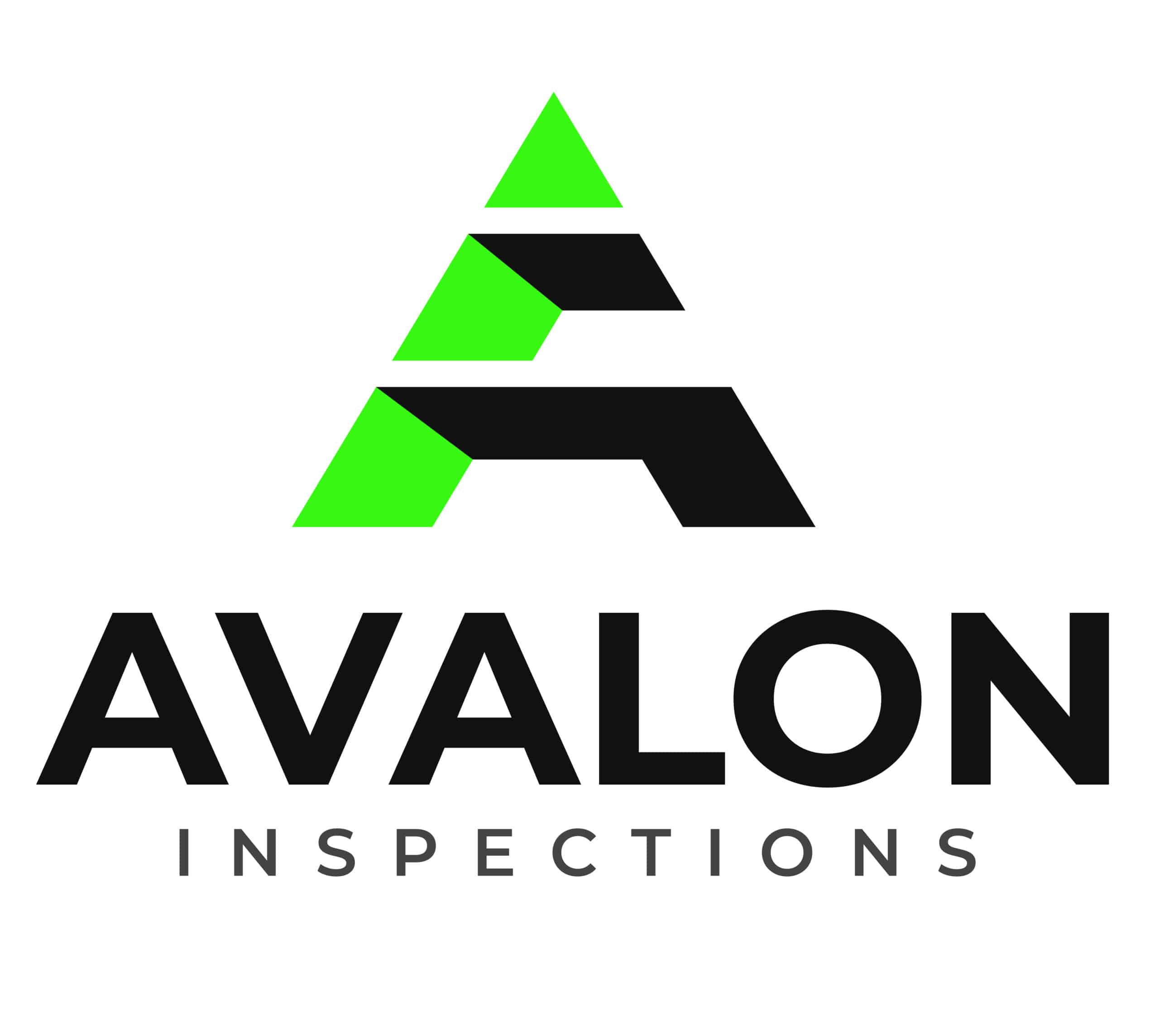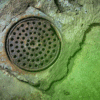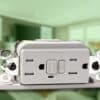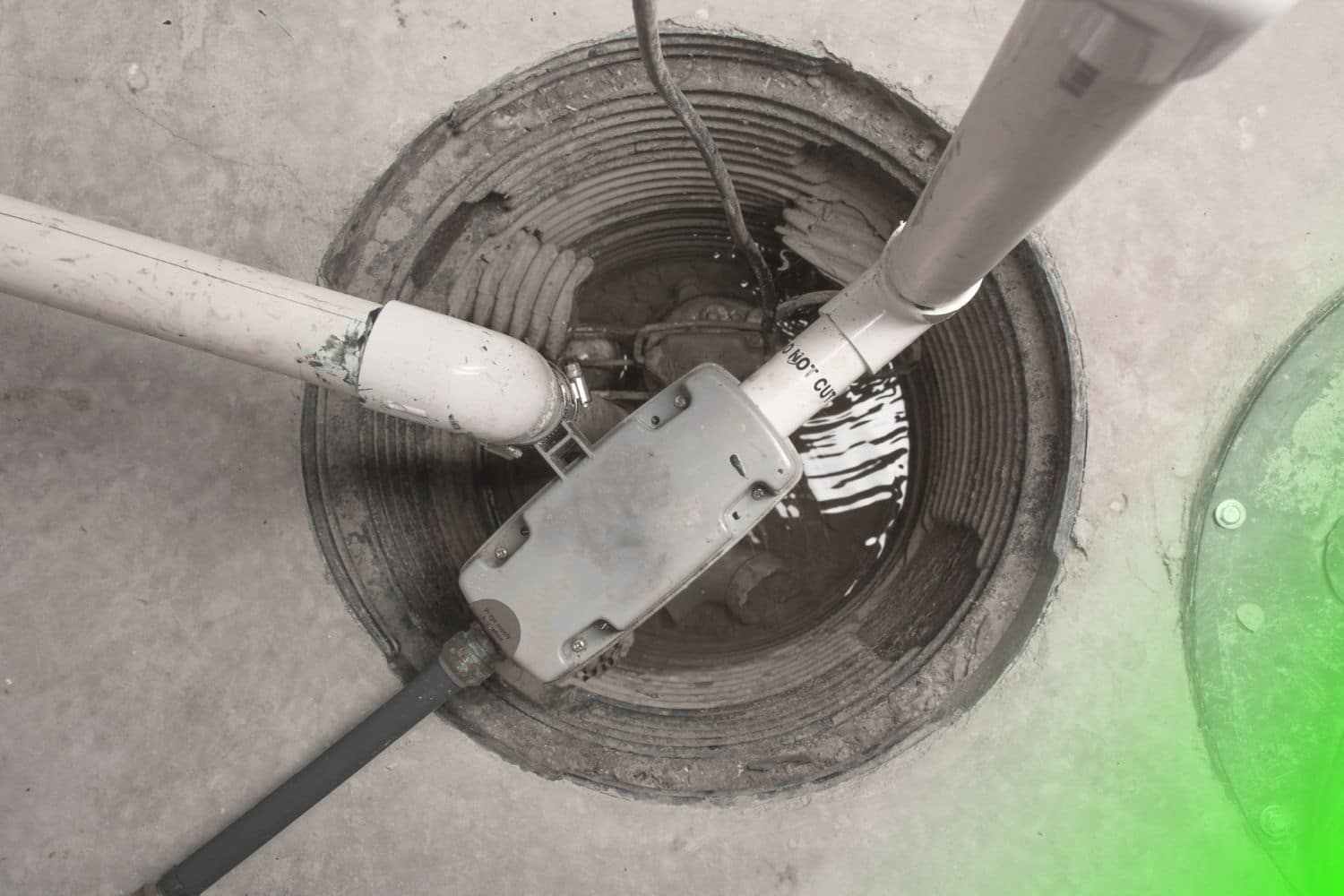
If you’ve ever walked through your basement and wondered why there’s no sump pump, you’re not alone. In some homes, sump pumps are standard equipment. In others, they’re not included at all.
Knowing whether your basement should have one (and what to do if it doesn’t) can help you prevent future water damage.
Let’s walk through what sump pumps actually do, why your basement might not have one, and when you should consider installing one.
What a Sump Pump Does and Why It Matters
A sump pump is a water removal device installed in the lowest part of a basement or crawl space. Its purpose is to pump out water that collects in a pit (called a sump basin) and move it away from the house.
These systems are designed to protect against:
- Groundwater intrusion
- Flooding after heavy rain
- Moisture buildup that leads to mold or mildew
- Foundation damage from long-term water exposure
When water rises inside the pit, a float activates the pump. The pump sends water through a discharge line that routes it away from your foundation.
This process reduces hydrostatic pressure under your slab or basement floor and helps keep the space dry.
Sump pumps are most commonly installed in homes that have a history of water issues or are located in high-risk areas, such as low elevations or flood zones.
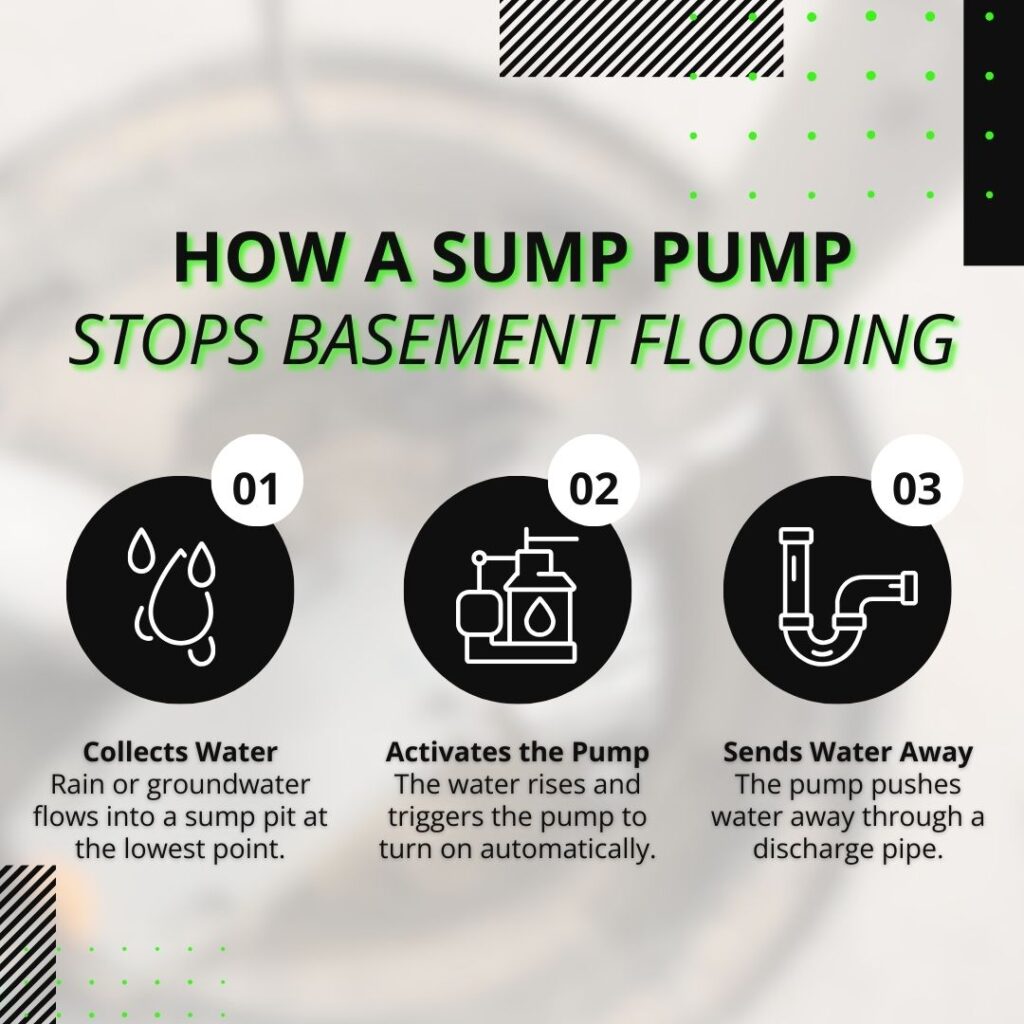
Why Your Basement Might Not Have a Sump Pump
Not every basement needs a sump pump, and some homes are built without one for valid reasons. Here are the most common explanations.
1. Your Lot Has Good Natural Drainage
If your home was built on sloped land, water naturally drains away from the foundation. That reduces the chance of groundwater collecting around your basement walls.
In neighborhoods where grading and soil conditions allow for passive drainage, sump pumps are not always needed.
2. Your Basement Is Above the Local Water Table
Homes that sit higher than the surrounding water table are less likely to experience hydrostatic pressure from below.
The water table in much of Georgia sits deep enough that it may not pose a risk for many properties, especially those not located near rivers or creeks.
3. The Soil Allows Water to Drain Properly
According to the USDA Soil Survey for Georgia, some Atlanta neighborhoods are built on sandy or loamy soil, which drains more efficiently than dense clay.
Well-drained soil helps reduce surface pooling and groundwater pressure, meaning less demand for internal drainage systems.
4. The Home Has External Drainage Features
Some properties use French drains, gravel trenches, or carefully sloped landscaping to move water away before it ever reaches the basement.
Homes with a full perimeter drainage system may not need a sump pump unless those systems fail or become overwhelmed.
5. You’re Not in a Flood Zone
FEMA-designated floodplains are areas where sump pumps are most common, but not all Atlanta homes fall within these zones.
You can look up your home’s flood risk using FEMA’s Map Service Center at msc.fema.gov
If your home is not in a high-risk zone, the original builder may have determined that a sump pump was not necessary based on code and inspection requirements at the time of construction.
When a Missing Sump Pump Becomes a Problem
Even if your basement doesn’t have a sump pump, you could still run into water problems in the future.
Heavy rainfall, landscaping changes, or aging waterproofing materials can lead to moisture finding its way into your basement.
You may want to consider installing a sump pump if you notice…
- A musty smell or damp air in the basement
- Water stains on concrete or drywall
- Visible condensation on cold surfaces
- Mold growth on stored items or lower walls
- Water pooling on the floor after storms
- An increase in pest activity near the foundation
According to the Insurance Information Institute, nearly one in four homeowner insurance claims involves water damage. And among those, basement-related losses are some of the most expensive.
Preventing even one incident of flooding could save thousands of dollars.
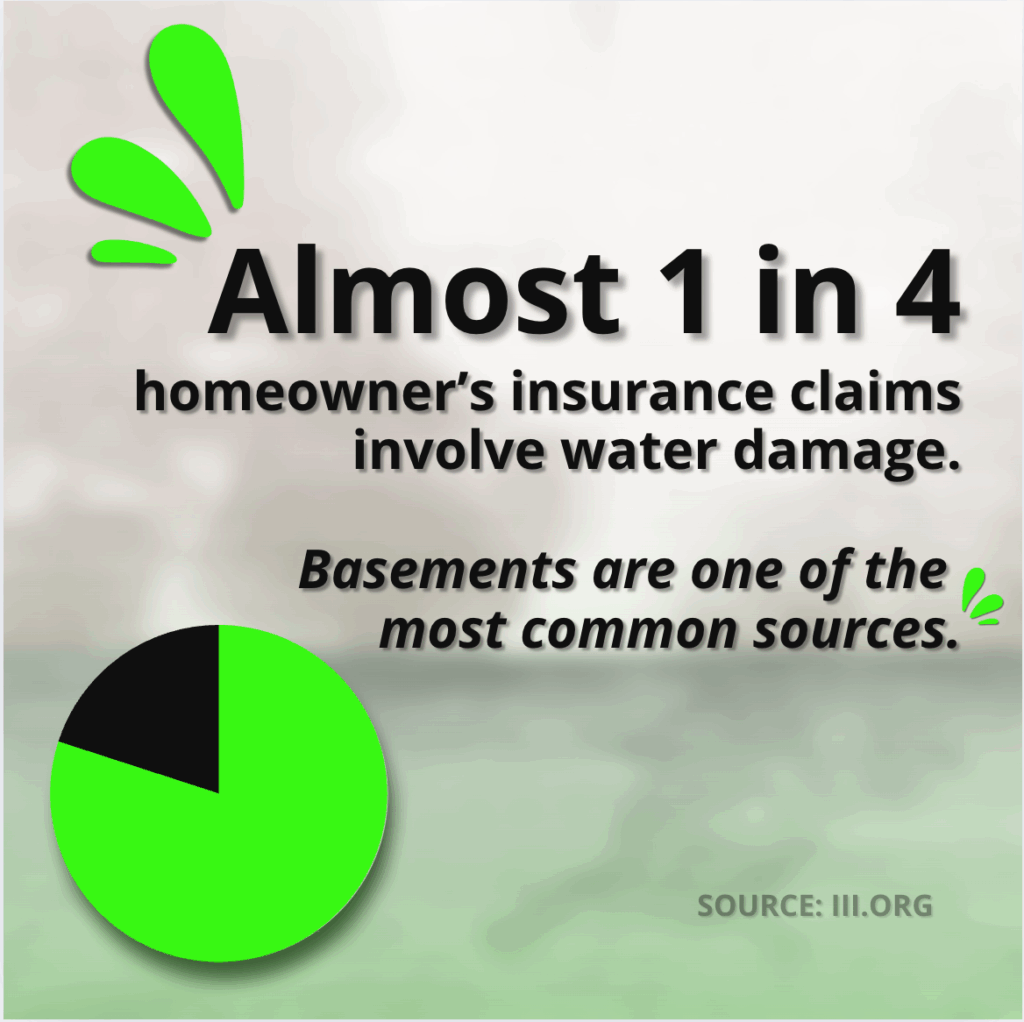
What If I Plan to Finish the Basement?
If you’re finishing your basement to add living space, storage, or appliances, a sump pump becomes much more important.
Even if your basement has stayed dry in the past, finished materials like carpet, drywall, and electronics are far more vulnerable to moisture damage than concrete or storage bins.
It’s also common to add a sump pump during renovation projects when access to plumbing and drainage is already open. Installing one at this stage is more efficient than waiting until there’s a leak.
Other Questions Homeowners Ask
How do I know if my basement needs a sump pump?
If your basement has standing water after heavy rain, damp walls, or signs of mold, it may be time to consider a sump pump.
A professional inspection can determine if drainage issues or groundwater levels put your home at risk.
Can sump pumps help protect crawlspaces, too?
Yes. Crawlspace flooding is just as common as basement flooding. Sump pumps can be installed in crawlspaces to control moisture, especially when paired with vapor barriers or drainage matting.
What other waterproofing methods should I consider?
Depending on your foundation, you might benefit from interior drains, downspout extensions, or exterior waterproof coatings.
A full waterproofing system often includes a sump pump plus additional solutions tailored to your home.
When to Call a Professional
If you’re unsure whether your home needs a sump pump, or if you’re noticing early signs of moisture, it’s worth scheduling a professional inspection.
A licensed inspector can evaluate your basement for existing water intrusion, check drainage slope around the house, and offer recommendations based on your local risk factors.
Georgia weather is unpredictable. Even homes that have stayed dry for years can suddenly develop problems after a single storm. Acting before a problem starts is much easier than cleaning up after one.
Conclusion
Not every basement has a sump pump, and not all of them need one. But knowing why yours doesn’t (and whether your home would benefit from one) can help you make informed decisions.
If you’re finishing your basement, storing valuable items downstairs, or have noticed signs of moisture, it may be time to consider installing a sump pump.
Avalon Home Inspections can help you understand your options, evaluate your current drainage setup, and protect your home before water becomes a costly problem.
